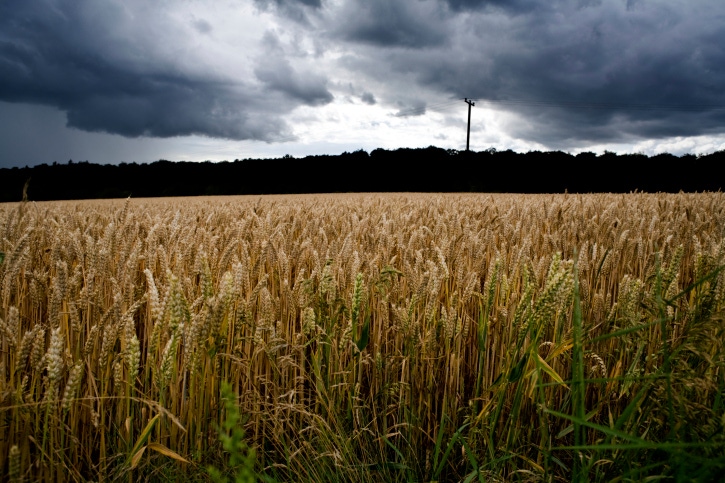
USDA’s Risk Management Agency announced June 30 the agency is adding new options for producers of dry beans, dry peas and small grains, such as wheat, as well as making other adjustments that make crop insurance more accessible for organic producers and veteran farm families.
RMA is making these changes through three final rules, which they also posted in the Federal Register.
“RMA is focused on how we can make crop insurance a better risk management tool for producers,” says RMA Acting Administrator Richard Flournoy. “This month, we’re rolling out a suite of updates based on feedback from producers and agricultural organizations that strengthen coverage options and increase consistency, clarity and flexibility. These updates will benefit producers of dry beans, dry peas and small grains, veteran farm families and organic producers in the certification process.”
The final rule provides wheat growers new options designed to improve crop insurance delivery and risk management options for producers. Specifically, these changes will allow enterprise units by type for wheat, which will enable producers to separately insure all the acres of a type of wheat in the county.
“Crop insurance provides a critical risk management tool for wheat growers and today’s announcement helps provide additional coverage options in areas where both winter and spring wheat are grown,” says National Association of Wheat Growers CEO Chandler Goule. “Previously, wheat producers could only get enterprise units for wheat, but this change breaks it out by type and prevents one type of wheat from impacting payments on another. Today’s announcement is welcome news, and NAWG will continue to work with its membership and RMA to provide feedback on how crop insurance can continue to provide additional flexibility and options to protect wheat growers and help manage risk on their operations.
RMA is accepting comments for 60 days each on these changes on all three rules: Dry Beans and Dry Peas, Small Grains and ARPI Regulations and CCIP Basic Provisions. Additionally, on the Small Grains Regulation, RMA is inviting comments on whether to allow replanting payments in situations where damage occurs prior to the fall final planting date in counties where winter and spring small grains coverage is available.
Dry beans and dry peas
Beginning in 2022, the Dry Beans and Dry Peas regulation will:
Allow enterprise and optional units by type for dry beans and dry peas, preventing a gain on one type of crop from impacting an indemnity for a loss on another type. Enterprise units by type allow a producer to insure all acres of a type in a county as one unit, as opposed to basic and optional units which may base insurance on a portion of the acreage. Enterprise units are attractive to producers due to additional premium discounts provided given risk is diversified across the county.
Also, allow enterprise and optional units for dry beans to be insured by written agreement, which is consistent with current provisions for dry peas.
Clarify that if no insurable fall planted acreage exists, the later spring sales closing date would apply in counties that have offers for both the fall and spring-planted types.
Small grains
Beginning in 2022, the Small Grains regulation will:
Allow enterprise units by type for wheat. Similar to dry beans and dry peas, this change will prevent a gain on one type of crop from impacting an indemnity for a loss on another type.
Allow optional units for Khorasan type wheat. Currently, optional units by type are available for all types insured, except for Khorasan.
Other amendments
RMA gathered feedback on the Area Risk Protection Insurance (ARPI) Regulations and Common Crop Insurance Policy (CCIP) Basic Provisions in 2020. Based on input, RMA issued a regulation to update the ARPI Regulations and CCIP Basic Provisions, beginning in 2022, that will:
Revise the definition of “veteran farmer or rancher” to allow a married couple to be considered a veteran farmer or rancher, even if one spouse is not a veteran. (ARPI Regulations and CCIP Basic Provisions)
Allow a producer to report acreage as certified organic, or as acreage in transition to organic, when the producer certifies that they have requested, in writing, a written certification or other written documentation from a certifying agent on or before the acreage reporting date. RMA allowed this flexibility during the pandemic, but certification is a challenge in normal years. Adding relief to the policy provides permanent flexibility.
About the Author(s)
You May Also Like






